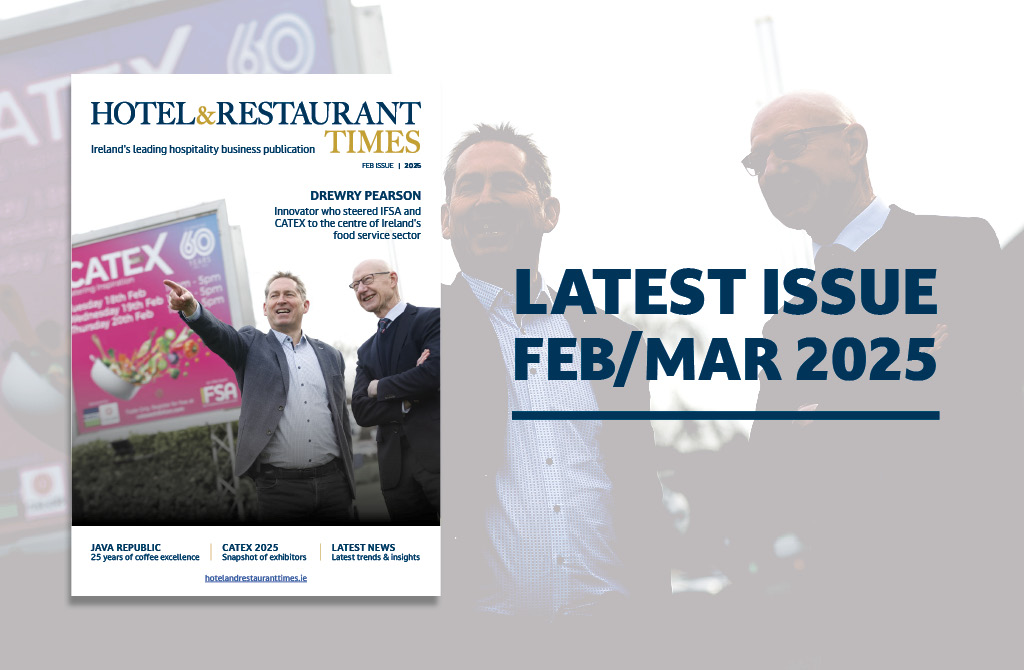
Tourism industry rebounded this year but full recovery not expected until 2026
- ITIC estimate that 7 million international tourists came to Ireland in 2022, a 73% recovery compared to 2019
- 246,500 jobs in Irish tourism sector according to CSO, country’s largest indigenous industry and biggest regional employer
- Heightened uncertainty for 2023 with air access and demand strong but cost inflation, competitiveness and supply shortages a concern
- Industry estimates 28% of all tourism beds in regional Ireland currently contracted to Government for humanitarian reasons, potentially costing the sector €1 billion in lost earnings next year
The Irish Tourism Industry Confederation (ITIC) has today issued its estimates for the volume of international visitor arrivals in 2022. ITIC estimate that 7 million international tourists came to Ireland this year, a 73% recovery compared to the pre-pandemic peak of 2019.
Of the 7 million international tourists this year, ITIC estimate that 2.6 million came from Mainland Europe down 28% on 2019, 2.4 million came from Britain (-30%), 1.5 million came from North America (-22%) while 0.46 million came from long haul markets (-32%).
With travel restrictions eased since March, the speed and strength of the recovery in travel to Ireland has exceeded expectations and the surge in demand surpassed most industry projections.
Elaina Fitzgerald Kane, Chairperson of ITIC, said: “2022 has thankfully been a stronger year than anticipated with pent-up demand, deferred bookings and accumulated savings all boosting business this year. It is vital that the sector returns to sustainable growth”.
Looking forward, ITIC welcomed the growth in air access to the country but expressed significant concern that continued recovery would be threatened by soaring cost inflation, the energy crisis, and the impact of Government contracts with tourism accommodation suppliers.
Estimates for next year range from a dip on this year’s performance to single digit growth. Air access and demand from key source markets look strong but economic headwinds globally, allied to cost inflation and supply constraints at home, make accurate forecasting challenging. ITIC estimate that a full tourism recovery to 2019 levels is not likely to be achieved until 2026.
“We obviously hope that we can continue momentum and recovery into next year”, said Fitzgerald Kane, “but Government must enable tourism success by extending the 9% Vat rate and reducing supply bottlenecks”.
Economist Jim Power recently completed a report for ITIC into the economic rationale for retaining the 9% Vat rate in lieu of the government’s current plan to reinstate the 13.5% from 1 March 2023. He estimated that the increase in Vat would add 4.1% inflation to accommodation and food services and cost 24,000 jobs. “Hopefully Minister McGrath heeds these warnings and quickly gives the industry certainty about the 9% Vat rate going forward.” said Fitzgerald Kane.
Referring to the impact of Government contracts for Ukrainian refugees and asylum seekers, Eoghan O’Mara Walsh, CEO of ITIC, expressed significant concern that tourism accommodation supply would be severely restricted next year impacting on the broader tourism economy’s recovery.
O’Mara Walsh said “We now estimate that at least 28% of all tourism beds in regional Ireland are not available to the tourism economy due to Government contracts. While hotels and guesthouses are part of the solution to accommodate refugees, they cannot be the only solution. If this level of tourism accommodation stock is not available next year for international visitors it could cost the broader tourism industry up to €1 billion in lost earnings”.
ITIC state that downstream businesses such as shops, attractions, pubs, restaurants and cultural experiences will be hit particularly hard. Fáilte Ireland data shows that for every €1 a tourist spends on accommodation, €2.50 is spent on ancillary tourism services.
In a flagship report last month on the impact of refugees and asylum seekers on Irish tourism ITIC argued that there needs to be a balanced 2 year humanitarian plan from Government as to how refugees and asylum seekers are to be accommodated including the use of vacant buildings, state institutions, unused dwellings and modular housing as well as tourism accommodation stock. ITIC also state that a Department of Taoiseach-led approach is needed such is the seriousness of this issue to both the welfare of refugees and to Ireland’s tourism industry.
“If there are no tourism beds in tourism towns next summer there will be no tourism activity and that will have a very negative impact on local economies”, warned O’Mara Walsh.
Fitzgerald Kane welcomed the recent multi-million-euro announcement for the midlands region as part of the EU’s Just Transition Fund saying that Irish tourism businesses were “ready to be world-leaders in sustainable tourism practices”.












